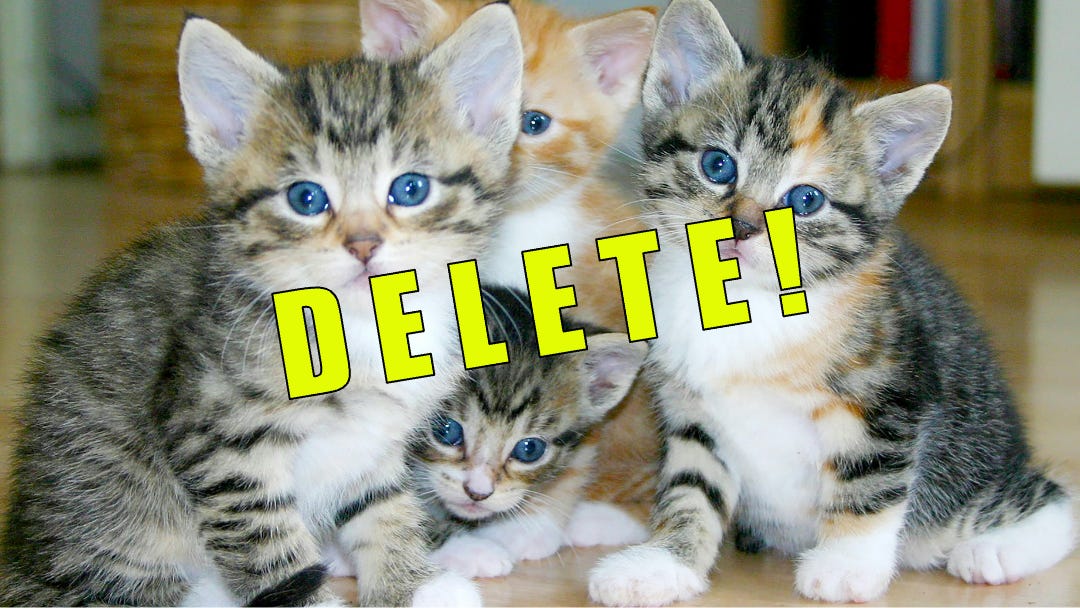Brits told to delete cat pics to fight drought while water bosses flush a TRILLION litres down the drain
Critics say deleting emails won’t save a drop, as utility companies and tech bros guzzle our water supply
In a move that many will find beyond parody, the UK government is now telling the public to delete old emails and photographs to “do their bit” in the fight against drought while water companies squander more than a TRILLION litres through leaking infrastructure per year.
Water levels at historic low
The bizarre suggestion came from the National Drought Group, a coalition of government agencies, water companies and environmental advisers, as England grapples with its worst dry spell since 1976. Reservoir levels have plunged to as low as 50% in some areas, hosepipe bans have spread across Yorkshire and the Southeast, and rivers are running at historic lows.
And yet, instead of holding water companies to account for their chronic failure to fix crumbling pipes or reining in the insatiable thirst of vast data centres owned by Big Tech that devour water to cool their servers, ministers are wagging their fingers at ordinary people—demanding they tinker at the margins of their personal lives.
Thirsty data centres
The logic goes like this: data centres, which power everything from email hosting to cloud storage, need colossal volumes of water to keep their servers cool. And they’re now guzzling even more water due to the AI boom while raking in massive profits. By deleting a few photos or messages, so the argument runs, you reduce pressure on these data centres and therefore save water.
But critics say this is a red herring of the highest order. There is no clear evidence whatsoever that your deleted emails will make the slightest dent in water use. Meanwhile, water companies are losing up to a quarter of all supply through leaky pipes—and in some cases, executives have pocketed huge bonuses despite repeated failures to meet repair targets.
Corporate blame, public responsibility
Yet, it is the public who already told to take shorter showers, fix dripping taps and now even delete pics of their beloved cats who are expected to shoulder the burden.
“Simple, everyday choices, such as turning off a tap or deleting old emails, also help the collective effort to reduce demand and help preserve the health of our rivers and wildlife,” insisted Helen Wakeham, Director of Water at the Environment Agency.
But many argue that the real responsibility lies at the top: with water executives that have failed for decades to invest properly in infrastructure and with their government cronies who have allowed them to get away with it.
What is the solution?
Until serious action is taken—plugging leaks, stopping corporate water wastage, and reining in the unchecked consumption of energy-hungry, water-guzzling data centres—demands that people delete emails or take two-minute showers will look not just laughable, but downright insulting.
Because while Britain dries up, the companies in charge of our water supply are letting it slip straight through their fingers.
The final question remains: are these corrupt water company bosses, tech bros and politicians ever going to change their ways? The evidence suggests not. Securing clean, reliable and sufficient water for our country may involve some drastic action: bit it will come at a cost to the elites, not the ordinary people of Britain.



